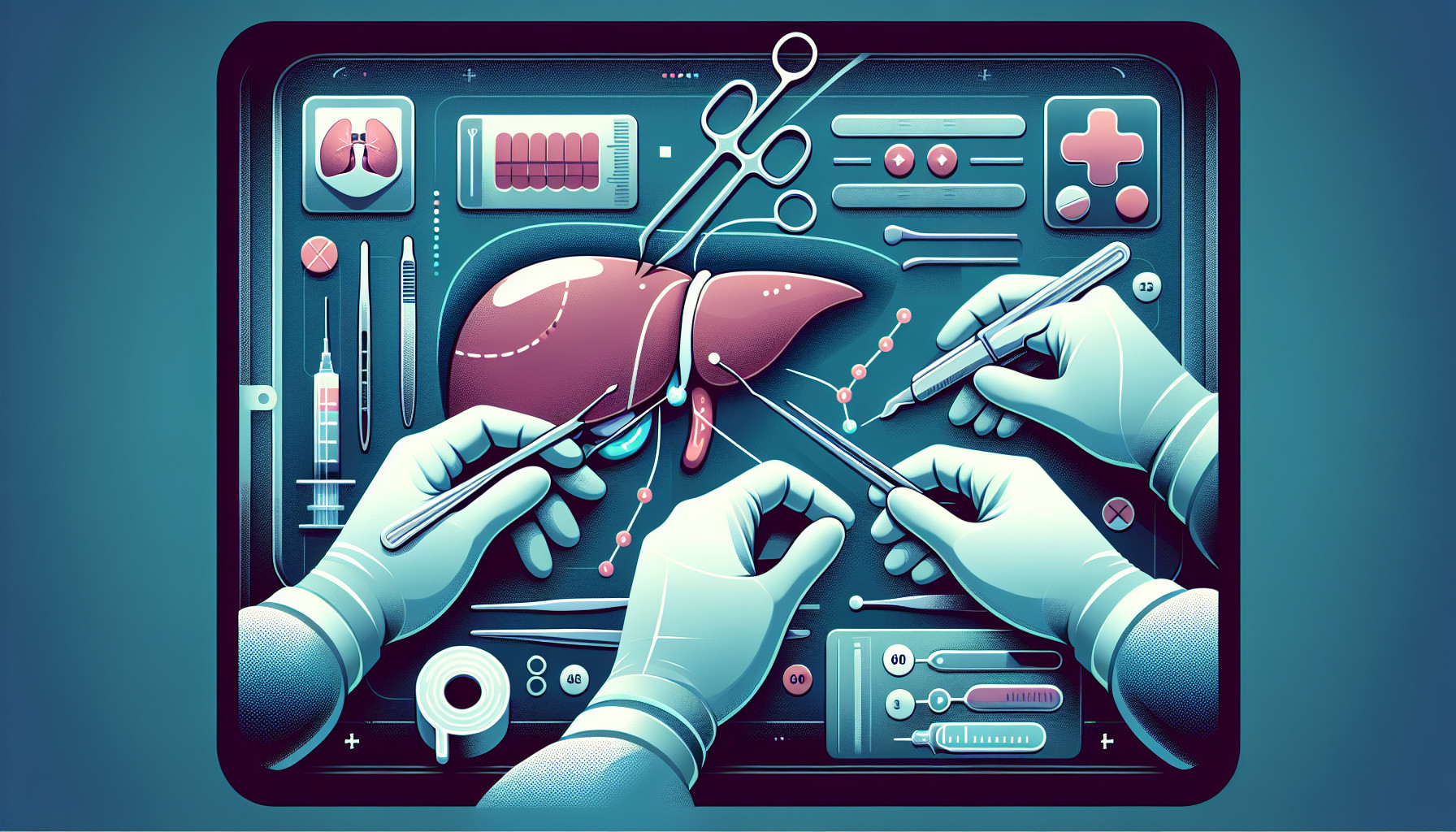Our Summary
This study looked at the safety and satisfaction of patients who were discharged from the hospital 2 hours after having a liver biopsy - a common medical procedure. The researchers studied all patients who had this procedure between December 2020 and November 2022. They found that most patients, primarily men around 52 years old, had minor side effects either during or within 2 hours of the procedure. Most of these side effects happened within the first hour after the biopsy. Only a small number of patients (2.5%) had to be watched for 4 hours due to pain in their abdomen or shoulder. There were no serious complications, and no one had to be readmitted to the hospital. Nearly all of the patients reported being satisfied with this protocol and felt safe, and most preferred leaving the hospital early. The study concluded that it is safe for patients who have a liver biopsy to be discharged 2 hours after the procedure.
FAQs
- What were the common side effects experienced by patients after a liver biopsy?
- What percentage of patients required longer observation due to pain after the procedure?
- Did any patients have to be readmitted to the hospital after being discharged 2 hours after a liver biopsy?
Doctor’s Tip
One helpful tip a doctor might tell a patient about liver biopsy is to avoid taking any blood thinners or anti-inflammatory medications before the procedure, as these can increase the risk of bleeding. It is also important to follow any fasting instructions provided by the healthcare team before the biopsy to ensure accurate results. After the procedure, patients should rest and avoid strenuous activities for a few days to allow the liver to heal properly. If any unusual symptoms occur, such as severe abdominal pain or bleeding, it is important to contact the healthcare provider immediately. Overall, following these guidelines can help ensure a safe and successful liver biopsy procedure.
Suitable For
Liver biopsy is typically recommended for patients who have:
- Chronic liver disease, such as hepatitis B or C, alcoholic liver disease, non-alcoholic fatty liver disease, or autoimmune liver disease
- Abnormal liver function tests that cannot be explained by other tests or imaging studies
- Liver tumors or masses that need to be evaluated for diagnosis or staging
- Monitoring for progression of liver disease or response to treatment
- Suspected liver infections, such as hepatitis
- Evaluation of liver damage or inflammation
It is important to consult with a healthcare provider to determine if a liver biopsy is necessary and appropriate for a particular patient’s medical condition.
Timeline
Before liver biopsy:
- Patient consultation with healthcare provider to discuss the need for liver biopsy and potential risks and benefits.
- Patient may undergo blood tests and imaging studies to assess liver function and determine the best approach for the biopsy.
- Patient is instructed to avoid eating or drinking for a certain period of time before the procedure.
- Patient is given information about what to expect during the procedure and any potential side effects.
During liver biopsy:
- Patient is positioned on their back or side on an examination table.
- Local anesthesia is administered to numb the area where the biopsy needle will be inserted.
- A small incision is made in the skin and a biopsy needle is inserted to collect a sample of liver tissue.
- Patient may experience some discomfort or pressure during the procedure.
- The sample is sent to a laboratory for analysis.
After liver biopsy:
- Patient is monitored for a period of time to check for any immediate complications such as bleeding or infection.
- Patient may experience mild pain or discomfort at the biopsy site or in the shoulder, which usually resolves within a few hours.
- Patient is given instructions on how to care for the biopsy site and when to follow up with their healthcare provider.
- Patient may need to avoid heavy lifting or strenuous activity for a few days after the procedure.
- Patient may receive the results of the biopsy within a few days to a week, depending on the laboratory’s processing time.
What to Ask Your Doctor
Some questions a patient should ask their doctor about liver biopsy include:
- What is the reason for recommending a liver biopsy?
- How will the procedure be performed?
- What are the potential risks and complications associated with a liver biopsy?
- How should I prepare for the procedure?
- Will I need to fast before the biopsy?
- Will I be sedated during the procedure?
- How long will the procedure take?
- What can I expect after the biopsy in terms of recovery and any potential side effects?
- When will I receive the results of the biopsy?
- Is it safe for me to be discharged from the hospital 2 hours after the procedure, as shown in the study?
Reference
Authors: Garrido I, Coelho R, Macedo G. Journal: Eur J Gastroenterol Hepatol. 2023 Oct 1;35(10):1186-1191. doi: 10.1097/MEG.0000000000002611. Epub 2023 Jul 11. PMID: 37577843
